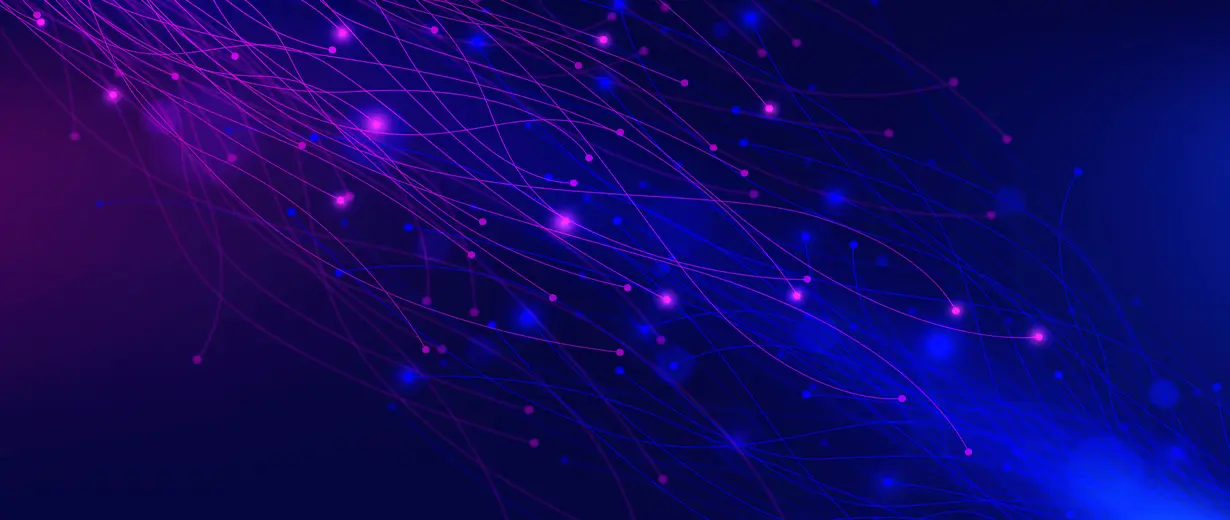Other recent blogs



Let's talk
Reach out, we'd love to hear from you!
In 2025, the integration of artificial intelligence in supply chain has transitioned from an optional competitive edge to an absolute necessity for survival among logistics providers and global operators. The market reflects this shift, with the global AI in logistics sector having exploded to $20.8 billion, following a staggering 45.6% compound annual growth rate since 2020, as noted by the latest McKinsey Global Institute Report. This innovative technology is fundamentally reshaping the flows of goods worldwide, with 75% supply chain leaders already reporting significant improvements after deploying AI-powered solutions. As customer expectations continue to rise, demanding same-day delivery, granular real-time tracking, and highly personalized service, organizations that hesitate to embrace AI capabilities are increasingly struggling to maintain a competitive advantage.
How AI in Supply Chain Automation Drives Business Survival and Growth
The pressure to adopt AI is further intensified by the significant costs tied to operational inefficiencies; an estimated 65% of logistics costs are bound up in last-mile delivery challenges and poor inventory management. In this environment, supply chain automation, driven by artificial intelligence in supply chain, is not just a tool for cost reduction but a vital pathway to both stability and growth. Several companies are leading the charge, positioning themselves as the cutting edge of the transformation by integrating AI across the entire supply chain- from initial sourcing to final delivery. This comprehensive guide serves as an essential resource, exploring precisely how AI is revolutionizing the logistics and supply chain landscape in 2025 and detailing how forward-thinking companies can strategically leverage these powerful technologies to thrive in an increasingly complex and demanding global marketplace.
The predictive power of AI supply chain management
One of the most transformative advantages of AI in supply chain is its formidable predictive capability. AI excels at analyzing vast, complex datasets to forecast outcomes, a function crucial for optimizing nearly every aspect of logistics, from inventory planning to demand sensing. As Peter Swartz, Co-Founder and Chief Science Officer of Altana AI, noted, AI's strength is its ability to process immense quantities of data. This capacity allows it to deliver a deeper understanding and recommend actions, effectively simplifying complex operational tasks.
Limitations and the Need for Extensive Data
However, the predictive power of AI is not without its limitations, which are evident while dealing with novel events. AI requires extensive datasets to generate accurate predictions. It generally struggles with unprecedented or rare events that lack sufficient historical data. "Let's take the pandemic, for example," he explains. "AI needs an immense amount of training data. How many pandemics have we had? One, two, three, four? It’s not millions, and AI needs a very large number”. Despite this challenge with “black swan” events, Artificial intelligence in supply chains still plays a vital role in anticipating and managing more frequent, common disruptions in supply chains, such as regular supply delays, seasonal demand spikes, or transportation disruptions.
Key AI technologies driving logistics transformation
In the specific context of the AI supply chain, AI encompasses a broad spectrum of sophisticated technologies that automate and optimize operations:
Machine learning(ML): These are algorithms that enable computers to learn from data and continuously improve their performance without being explicitly programmed. ML relies on statistical techniques to identify patterns and make data-driven decisions, often involving the use of neural networks.
Natural language processing(NLP): This technique allows computers to understand, interpret, and generate human language. NLP encompasses the analysis and synthesis of text and speech, bridging the gap between human communication and computational processes.
Computer Vision: This involves systems that can interpret and understand visual information from the physical world, typically using cameras and sensors. It uses deep learning models to process images and videos, enabling computers to "see" and make decisions based on visual data.
Robotics: These are automated machines designed to perform physical tasks that would traditionally require human labor. Modern robotics often includes sophisticated sensors and AI-powered navigation systems to operate autonomously and collaboratively with humans.
Applications of AI in supply chain
AI in supply chain is rapidly becoming an indispensable technology, fundamentally reshaping how modern supply chains operate. By leveraging advanced machine learning algorithms and vast datasets, AI enables companies to move beyond traditional reactive models toward predictive and proactive strategies. Its primary role is to drive significant improvements in key areas such as demand forecasting, transportation optimization, and warehouse automation. Implementing AI in supply chain results in more intelligent, resilient, and cost-efficient supply chain operations worldwide. Let’s have a look at the numerous applications of artificial intelligence in supply chain management.
1. Transportation and routing optimization:
AI algorithms are key to achieving efficient route planning, considering dynamic factors like real-time traffic congestion, weather patterns, road closures, and specific delivery time windows to compute the fastest and most cost-effective routes. This process is heavily supported by Vehicle Telematics, where AI analyzes data streams from vehicle sensors to track location, monitor fuel consumption, and preemptively identify potential maintenance issues. Looking ahead, the rise of Autonomous Vehicles—from self-driving trucks to delivery drones—is set to revolutionize transport by enabling 24/7 operations, lowering labor costs, and increasing overall logistical throughput.
2. Warehouse automation:
AI drives warehouse automation, mainly through automated storage and retrieval systems that use AI logic to optimize product storage locations and retrieval sequences, minimizing manual labor and error rates. Robotic systems, guided by AI, perform repetitive and physically demanding tasks such as picking, packing, and sorting with unparalleled speed and precision. Integrated AI also manages inventory management with the warehouse, tracking stock levels in real-time, reconciling discrepancies, and providing automated alerts for low stock to maintain efficient workflows.
3. Quality control and inspection:
Leveraging advanced computer vision and machine learning models, AI-powered cameras and sensors are deployed to perform rapid, non-destructive quality control and inspection of products and packaging. These systems can instantly detect various defects and assess product damage, ensure correct labeling, and ensure compliance with stringent quality standards. This automated inspection process minimizes human error, ensures that only correct items enter the distribution network, and handles high volumes far more efficiently than traditional manual checks.
4. Supply chain visibility and risk management:
AI-enabled tracking systems provide real-time tracking and end-to-end visibility into the movement of goods, allowing stakeholders to monitor shipment status and identify possible checkpoints instantly. Sophisticated AI algorithms analyze this data alongside external geopolitical, economic, and weather inputs for robust risk identification and mitigation. By proactively identifying potential risks, businesses can develop contingency plans, leading directly to greater supply chain resilience and minimizing operational disruptions.
5. Fraud detection and security:
AI systems play a crucial role in logistics security by performing deep analysis of transaction data, shipping logs, and behavioral patterns to instantly identify and flag anomalies indicative of fraudulent activity. This includes identifying unauthorized access, suspicious financial transactions, or the diversion of high-value goods along the transport path. By establishing baselines of normal operations, AI provides a powerful, real-time security layer that significantly reduces financial losses and enhances the integrity of the supply chain.
Benefits of AI in Logistics and Supply Chain
The logistics and supply chain sector is undergoing a profound digital transformation, with Artificial Intelligence (AI) emerging as a pivotal force for change. Traditional operational models often struggle with the complexity, volatility, and sheer scale of modern global commerce. AI technologies, including machine learning and predictive analytics, offer sophisticated solutions to these challenges. By enabling unparalleled efficiency and visibility, AI is revolutionizing everything from warehouse management to route optimization and demand forecasting. This integration promises not only significant cost reductions but also unprecedented levels of resilience and responsiveness in the supply chain ecosystem.
1. Increased operational efficiency
AI delivers a significant boost to operational efficiency by automating numerous routine and repetitive tasks, such as data entry, order processing, and compliance checks, which frees up human workers to concentrate on more strategic, high-value activities. Furthermore, AI algorithms continuously analyze vast datasets to identify inherent process inefficiencies and then suggest optimal configurations, refining complex areas like transportation routes and warehouse layouts. This systemic optimization dramatically minimizes the occurrence of costly human errors across order fulfillment and inventory management.
2. Improved data quality and system integration
A foundational benefit of AI is the significant improvement in data quality and system operability. AI uses advanced techniques like Machine Learning to process and reconcile vast, unstructured data sets from numerous sources (sensors, suppliers, WMS, ERP). It automatically cleans, validates, and standardizes this input, effectively solving the common industry challenge of unreliable data. This robust, integrated data foundation facilitates seamless communication and integration across all disparate systems, ensuring that every decision is based on a single, highly accurate source of truth.
3. Improved strategic decision-making
AI empowers organizations with improved strategic decision-making capabilities by providing deep, data-driven insights that would be impossible for humans to process manually. Through advanced predictive analytics, AI can accurately forecast future trends and crucial events, such as volatile shifts in market demand or looming supply chain disruptions, well in advance. This foresight enables management to make faster, more informed, and reliable data-backed decisions across planning, procurement, and execution functions.
4. Cost reduction
A major benefit of AI is substantial cost reduction achieved through optimized resource management across the entire chain. AI helps businesses allocate resources by maintaining optimum inventory levels, which eradicates financial losses from expensive stockouts and warehousing excess inventory. By automating critical tasks and continuously optimizing complex logistical processes, AI lowers the need for large-scale manual oversight, directly contributing to a substantial reduction in overall expenses and waste.
5. Increased customer satisfaction
AI directly contributes to enhanced customer satisfaction through optimization and personalization across the final mile. By using AI to optimize transportation routes and minimize unforeseen delays, businesses can guarantee faster, more reliable delivery times. Besides that, the technology ensures higher accuracy in order fulfillment and shipping, thereby reducing errors. AI is also leveraged to provide personalized customer service, offering relevant product recommendations and proactive communication about shipment status.
Conclusion
Artificial Intelligence is not just an incremental upgrade; it represents a fundamental shift in the AI in logistics and supply chain industry, enabling organizations to move from reactive management to proactive, intelligent operations. As demonstrated throughout this blog, AI's applications—from precise demand forecasting and dynamic route optimization to advanced warehouse automation—are foundational to achieving superior operational efficiency, dramatic cost reductions, and enhanced customer satisfaction. By strategically harnessing the power of Artificial intelligence in supply chain, companies gain the critical competitive edge needed to navigate global complexities and build supply chains that are both highly resilient and exceptionally efficient.
The trajectory of AI innovation shows no signs of slowing. As machine learning models become more sophisticated, we anticipate a future with even more groundbreaking applications that further automate decision-making and enhance sustainability. To secure your place in this intelligent future, the time to act is now.



